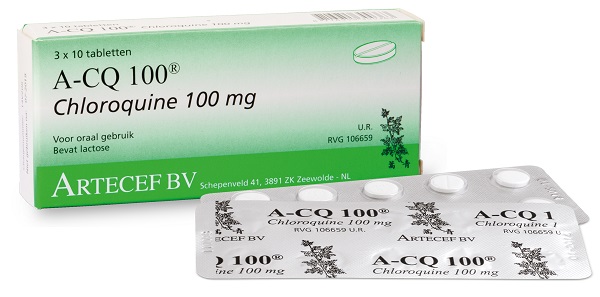The United States President, Donald Trump has approved for the fast-tracking of the anti-malarial drug chloroquine to treat coronavirus patients.
President Trump said on Thursday that “We’re going to be able to make that drug available almost immediately, and that’s where the FDA (Food and Drug Administration) has been so great.”
He told reporters that “They’ve gone through the approval process — it’s been approved. They took it down from many, many months to immediate. So we’re going to be able to make that drug available by prescription.”
Meanwhile the FDA Commissioner Stephen Hahn revealed that access to the drug was being expanded so that authorities could gather more data.
He however cautioned that the drug has not yet been formally approved although it could be made available for “compassionate use.”
“If there is an experimental drug that is potentially available, a doctor could ask for that drug to be used in a patient. We have criteria for that and very speedy approval for that,” said Hahn.
Hahn adds that “As an example, many Americans have read studies and heard media reports about this drug chloroquine, which is an anti-malarial drug.
“It’s already approved, as the president said, for the treatment of malaria as well as an arthritis condition.
“That’s a drug that the president directed us to take a closer look at, as to whether an expanded use approach to that could be done to actually see if that benefits patients.”
Efficacy of chloroquine
Australian researchers have already said that some Covid-19 patients have responded ‘very well’ to drugs used to treat HIV and malaria.
This signals a potential treatment for the coronavirus, according to these scientists in Australia.
A team of infectious disease experts at the University of Queensland in Brisbane revealed that two existing medications helped to wipe out COVID-19 infections.
Chloroquine, an anti-malarial drug, and HIV-suppressing combination lopinavir/ritonavir are the drugs the scientists mentioned.
Chloroquine works in a different way and is given to people to prevent malaria infections if they are bitten by a mosquito carrying the parasite.
The drug works by salts inside them poisoning parasites and preventing them from growing inside human red blood cells.
Queensland researcher, Professor David Paterson, said he hopes to enrol people in larger scale pharmaceutical trials by the end of this month.
“if we can test it in this first wave of patients, we do fully expect that there are going to be ongoing infections for months and months ahead, and therefore we’ll have the best possible information to treat subsequent patients,” Prof Paterson said.
But Paterson said it wouldn’t be wrong to consider the drugs a possible ‘treatment or cure’ for the deadly respiratory infection.
Source: Africafeeds.com



